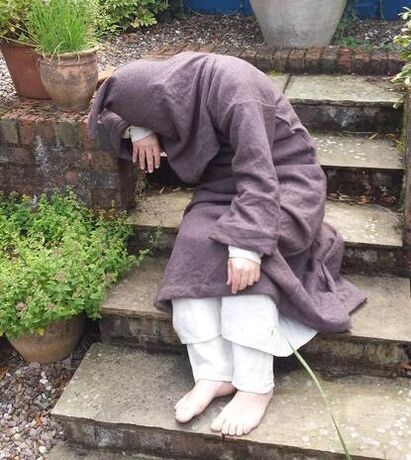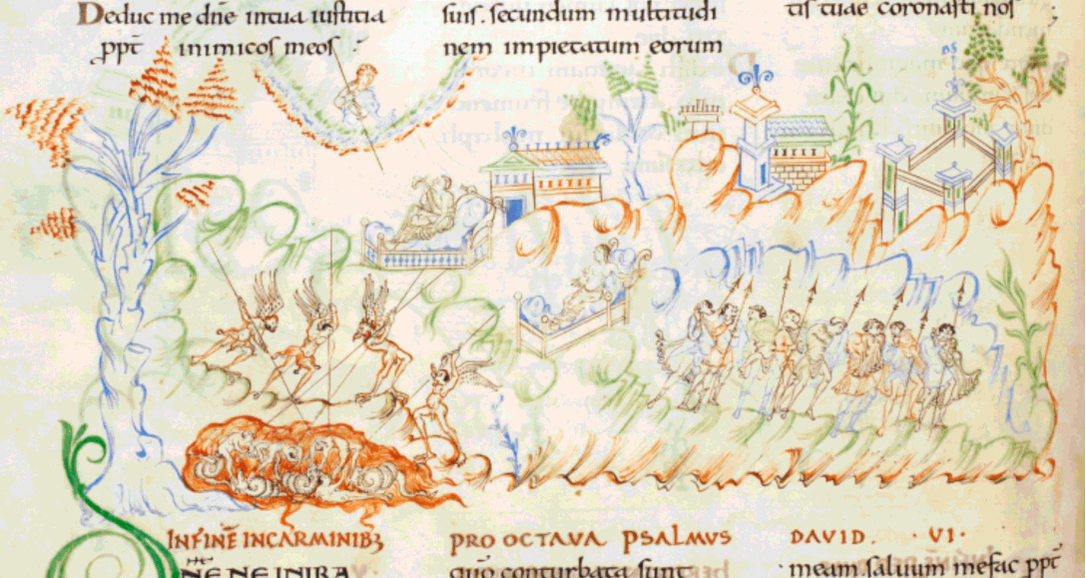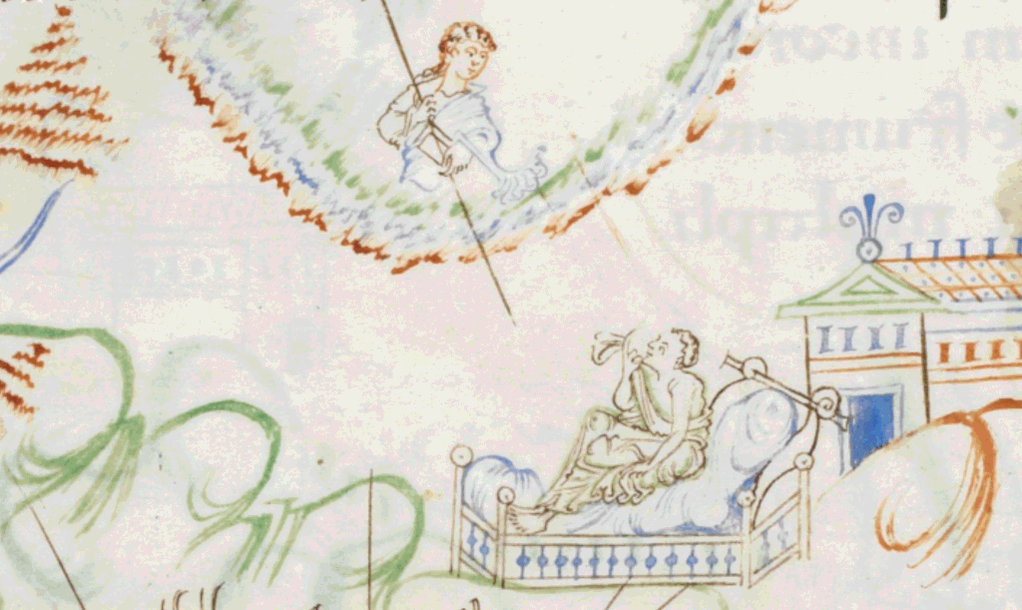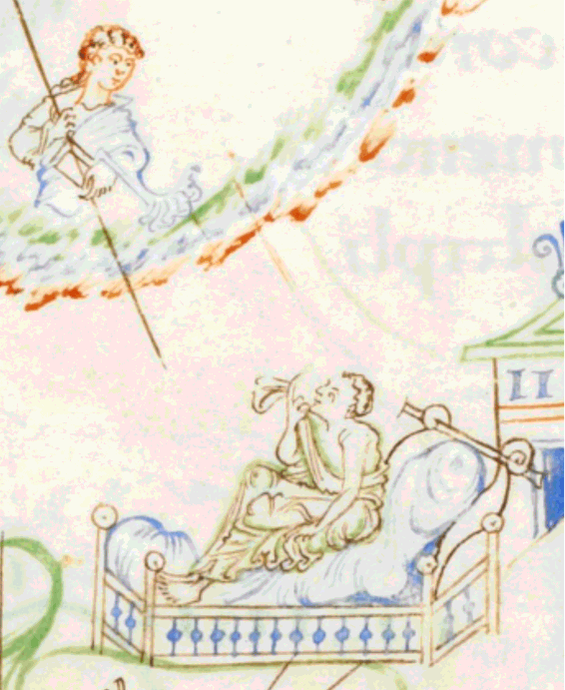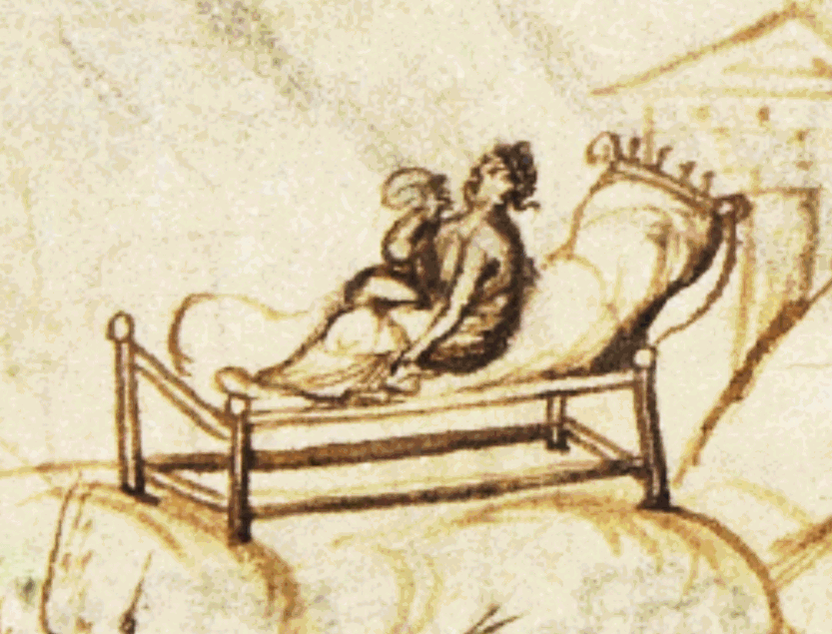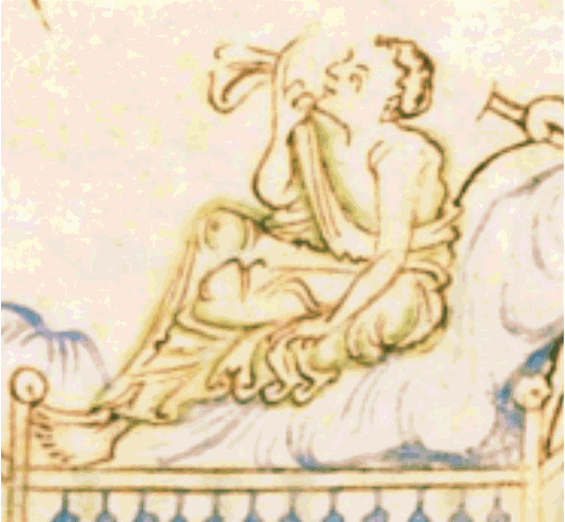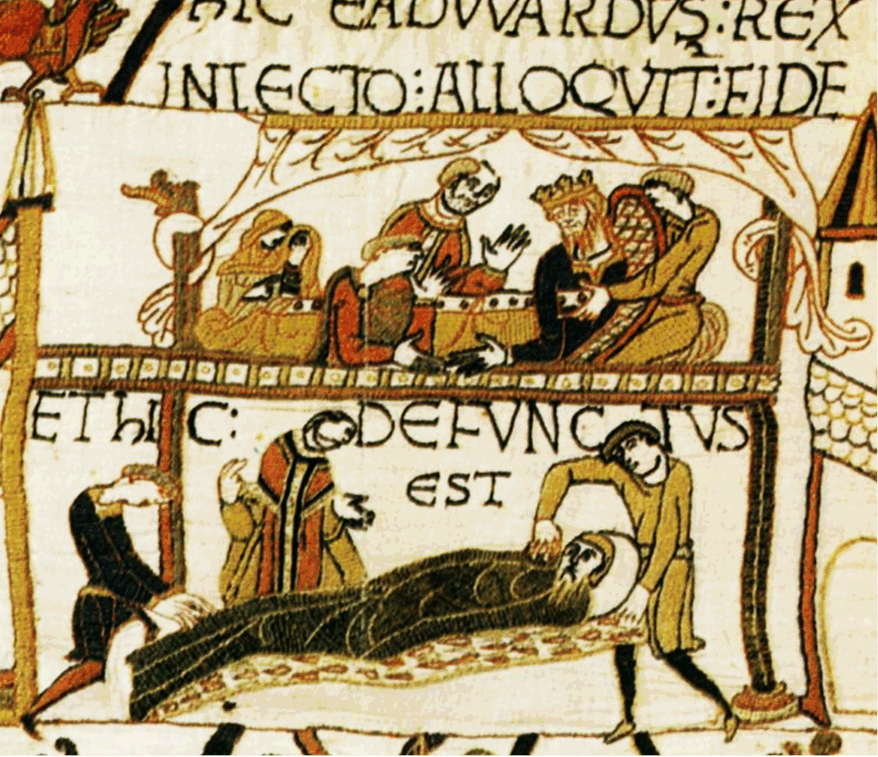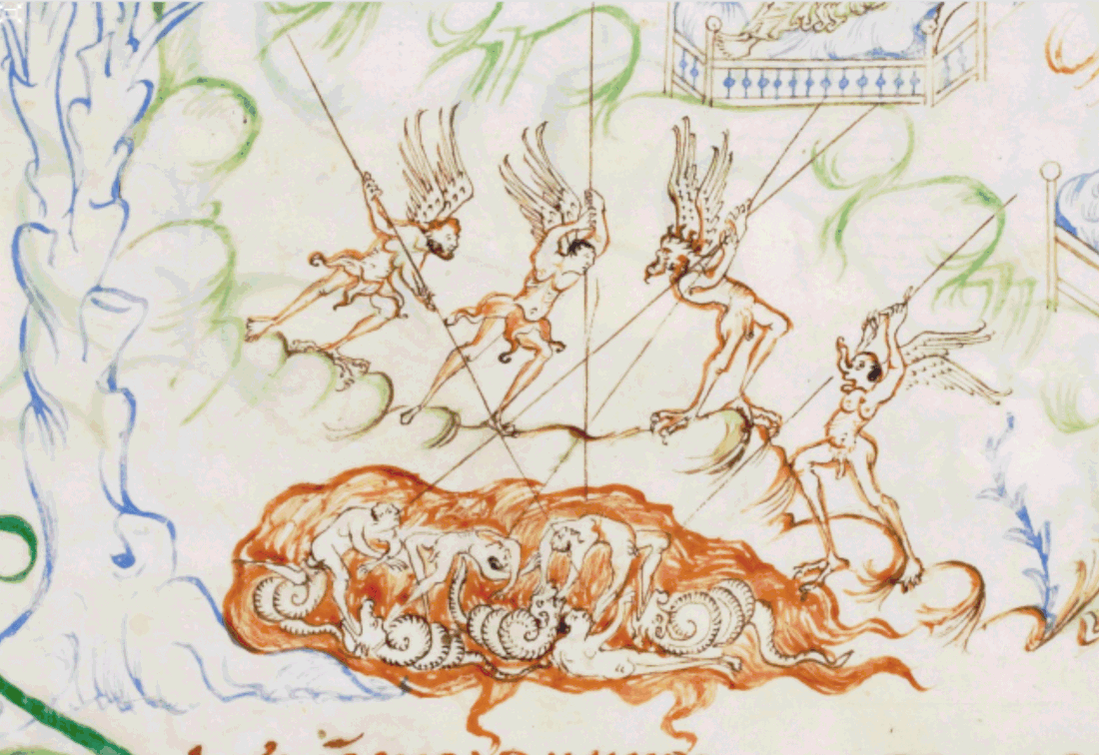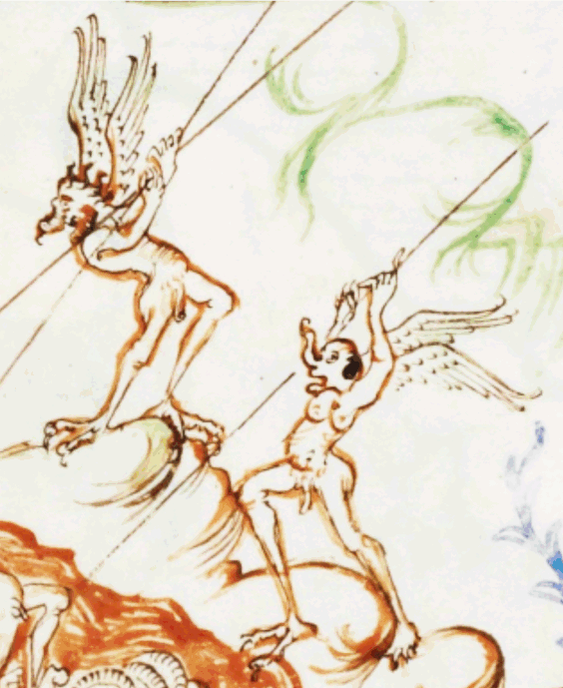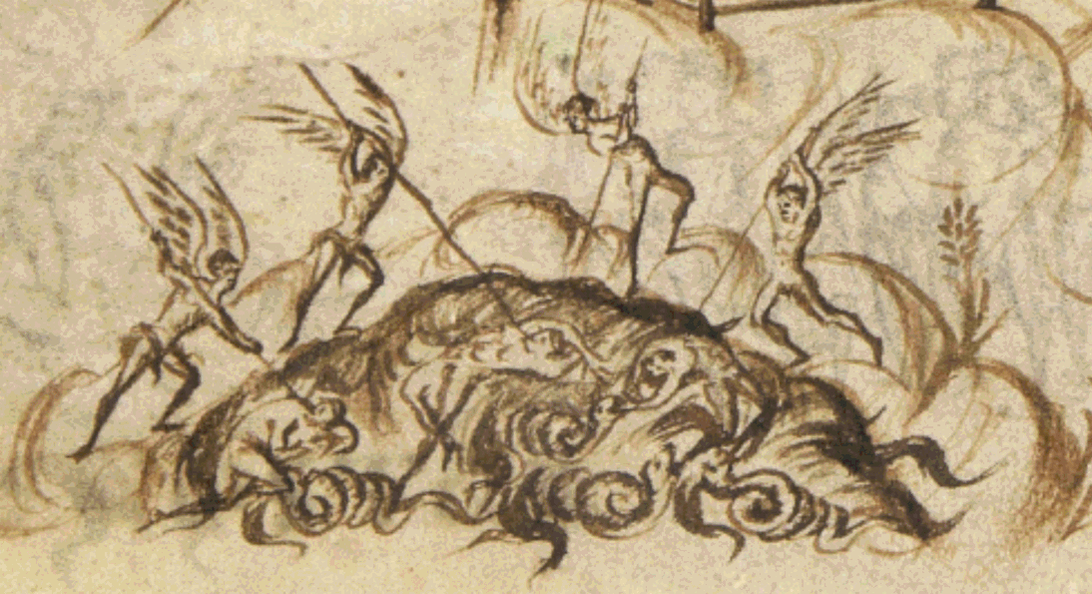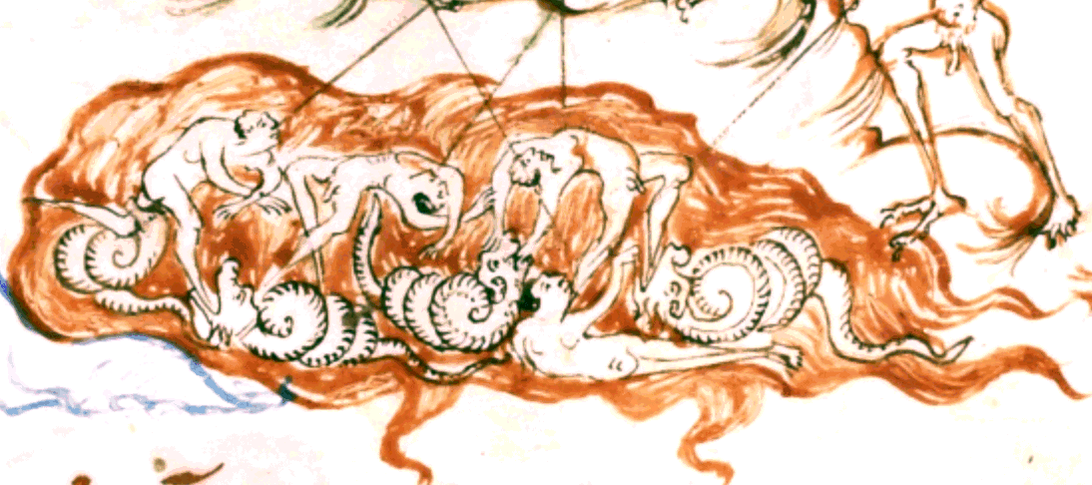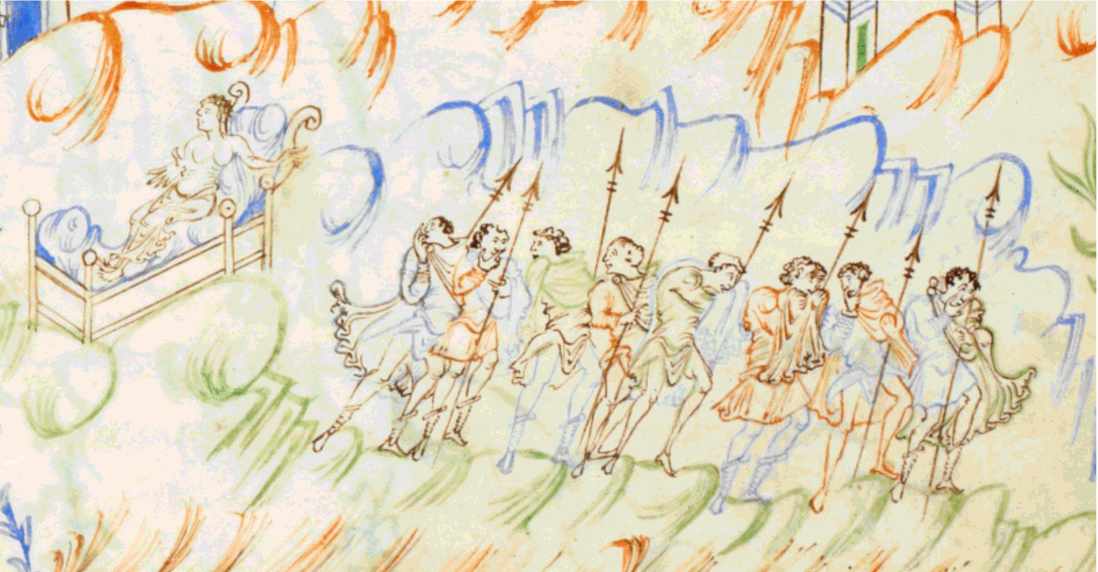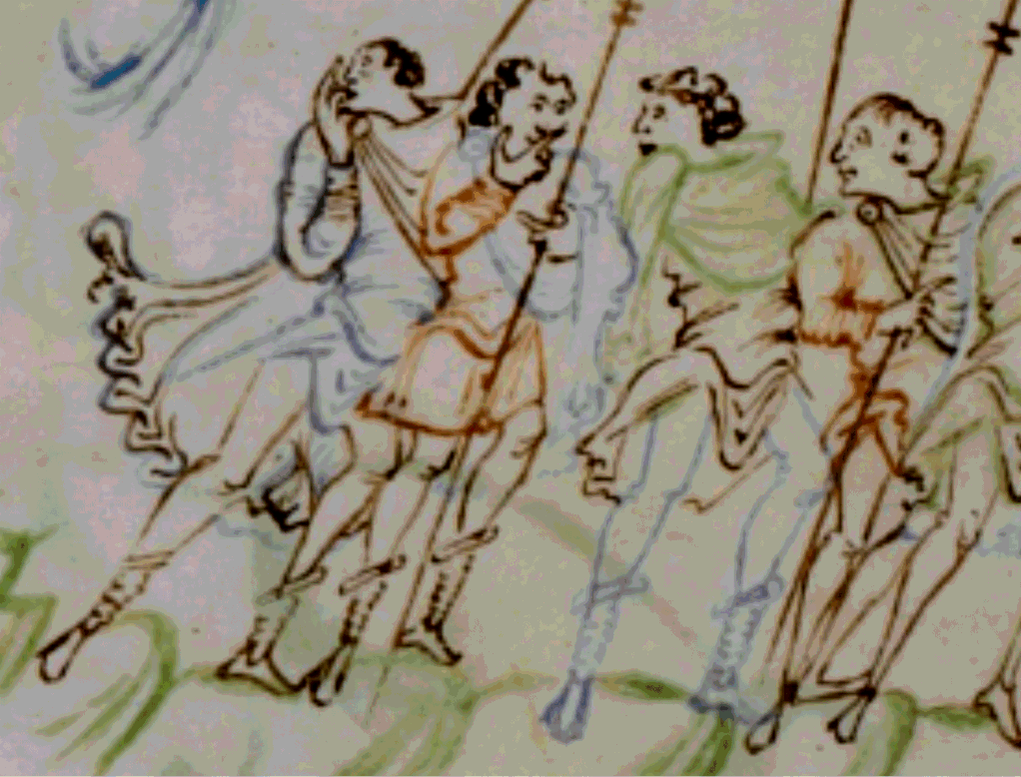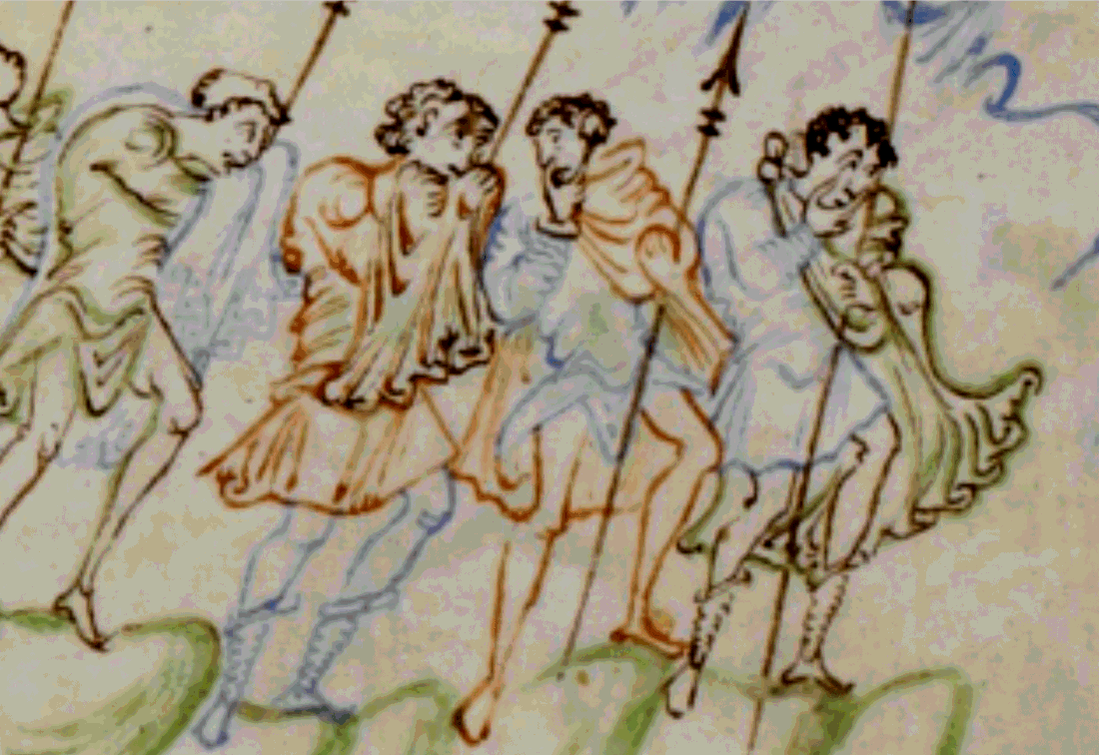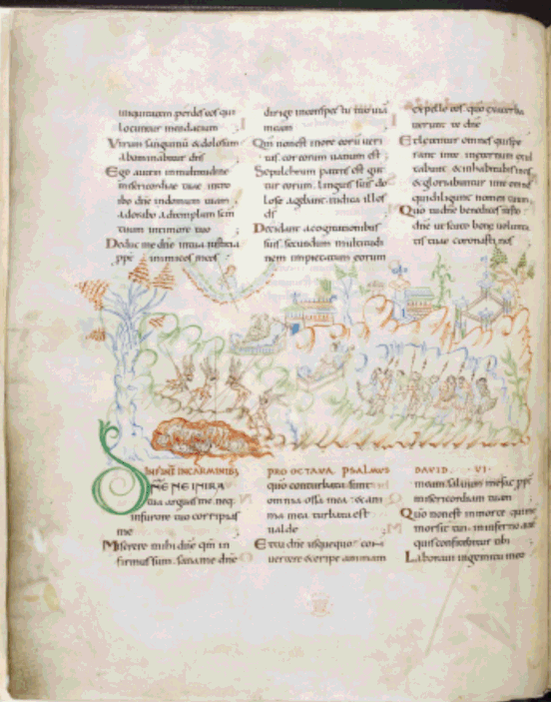Welcome back charadees! The Anglo-Saxon Monk returns with his own brand of art history.Blessed ones, I offer you profuse apologies. I have been so neglectful of my spiritual duties. It has been months since we last enjoyed our perusal of the psalms of the Lord by means of the wonderful Harley Psalter. Since I have been so remiss, I had better remind you all of what you need to know to play medieval charades: The eleventh-century Harley Psalter is an English copy of the Carolingian Utrecht Psalter, produced in the ninth century. Each of the Psalms in these great manuscripts is cleverly illustrated by focusing on individual words or phrases that appear in the text. What you see, then, is not narrative art in the traditional sense, where a story unfolds in a series of scenes reminiscent of theatre, such as in the Old English Illustrated Hexateuch (a visual retelling of the first six books of the Bible), or in one of your modern comic strips. Rather, you get to participate in the artist's game of 'which-bit-am-I?'. Thus, the art historian William Noel coined the phrase ‘medieval charades’, because reading the art in these psalters is similar to the way you have to work out the clues in your modern parlour game. Now to play. Just remember, what you're looking for are the clues to words or phrases in the illustrations (I shall put the answers in bold and underline them). And, please, no shouting. It's so unbecoming! Let us start with an easy clue. Who is the fellow in the sky with a book and a spear? It would have been helpful had the artist remembered his nimbus (halo), as the Utrecht artist did, though even he forgot to put the cross inside it. Nevertheless, you can see that he has no wings, so he's not an angel. You've got it, haven't you? That's right: the Lord. So, who is the other fellow? To be fair, and by way of reminder, usually the psalmist appears in the scene somewhere, and so this is him. But what is he doing? That's the more difficult thing to work out. Well, clearly he is looking upwards to the Lord. If you look really closely, you may see that he is actually pointing upwards with his right index finger. I think he must be pretty sure that he is addressing the Lord. But why is he in bed? Shouldn't he be prostrating himself, or at least doing a spot of genuflecting? Let's not be too hasty to judge him. The poor fellow is probably not feeling too well. That would explain the bed which, by the way, is rather a smart affair, far more elegant than the Utrecht artist's bed. When we look closely at the psalmist, we can see that he is raising part of his garment to his face. Why would he do that? No, it's not because he doesn't want to give the Lord his cold. Don't be silly. Let me give you a clue from the Bayeux Tapestry. Take a look at Queen Edith at the foot of the bed of her dying husband, King Edward. Note that, like our psalmist, she raises her garment to her face. You've got it, haven't you! Both the queen and our psalmist are shedding tears. And on reflection, the psalmist's outpouring of grief is wholly understandable. Just look at those lumpy bed clothes. Quite awful, really, enough to make any grown man cry, I'd say. So we've got the Lord, bed, and tears. Excellent. What's next? I think this is probably obvious. A fiery red pit and tormented bodies? Hell, you shout (no shouting, please!). You're right, of course. But we must take a closer look. You need to know what to expect should you not meet with a favourable response on Judgement Day. I must say, the Harley Psalter artist seems rather enthusiastic in his treatment of the damned. Let's start with the tormenters. These four fallen angels are but a shadow of their former selves. We've seen in previous charade games the elegant, classical dress of good angels. Now, for these wicked devils, it seems like they're lucky if they get a raggedy skirt between them. And, if exposed genitalia isn't enough, there seems to have been among Satan's crowd a serious outbreak of chicken-foot. And those hideous snouts are most disturbing. Fancy meeting those in Hell! It is intriguing, at least to me, blessed ones, that the Harley Psalter artist went out of his way to elaborate upon the scene of Hell in his exemplar. The Utrecht Psalter's scene is almost dull in comparison. A fevered mind, I suspect is to blame. And an unhealthy obsession with exposed genitalia, as can be seen from his depiction of the souls tormented by those monstrous serpents. We should move on to our final and most difficult clue. As you see, on the left, our psalmist makes a second appearance in bed. What do you mean, how do I know it's not someone else? It's the psalmist, I tell you. I don't care if he looks younger and is in a different bed. It's the psalmist, I tell you. This is my game, and I say it's the psalmist. Well, at least it's his soul. And take it from me, his soul is troubled exceedingly. I think his bed is even lumpier than before. Actually, he's troubled by that crowd of spear-wielding, short tunic-wearing fellows to the right. Who wouldn't be? A shifty lot, don't you think? Let's have a closer look at them: Don't be fooled by the flouncy cloak and snazzy hose! That fellow on the far left is literally pulling his face at the embattled psalmist. Meanie! The fellow next to him is not much better, covering his mouth as he gossips about our bed-ridden one. You've got it now, haven't you? Yes, these are the psalmist's enemies. But they will not win! Look at them now! Sloping off, covering their faces with their cloaks and hands. No more face pullling. Why it's as if they have been turned back and ashamed very speedily. Yes! You got that, didn't you? No? Well, there's no hope for you, really, there isn't. Alas! Not everyone can be a first rate charadee. But everyone must be a first rate reader of the Psalms. And so, as a sign of penance for your epic failure in today's medieval charades, you should read Psalm 6, all the way through, at least six times (I've lovingly provided it for you below), and please pay extra special attention to the highlighted words that some of us actually managed to work out. May you all be thoroughly blessed. PSALM 6
2 Comments
8/6/2018 10:41:15 pm
Very Informative and useful... Keep it up the great work.
Reply
Your comment will be posted after it is approved.
Leave a Reply. |
Details
|

